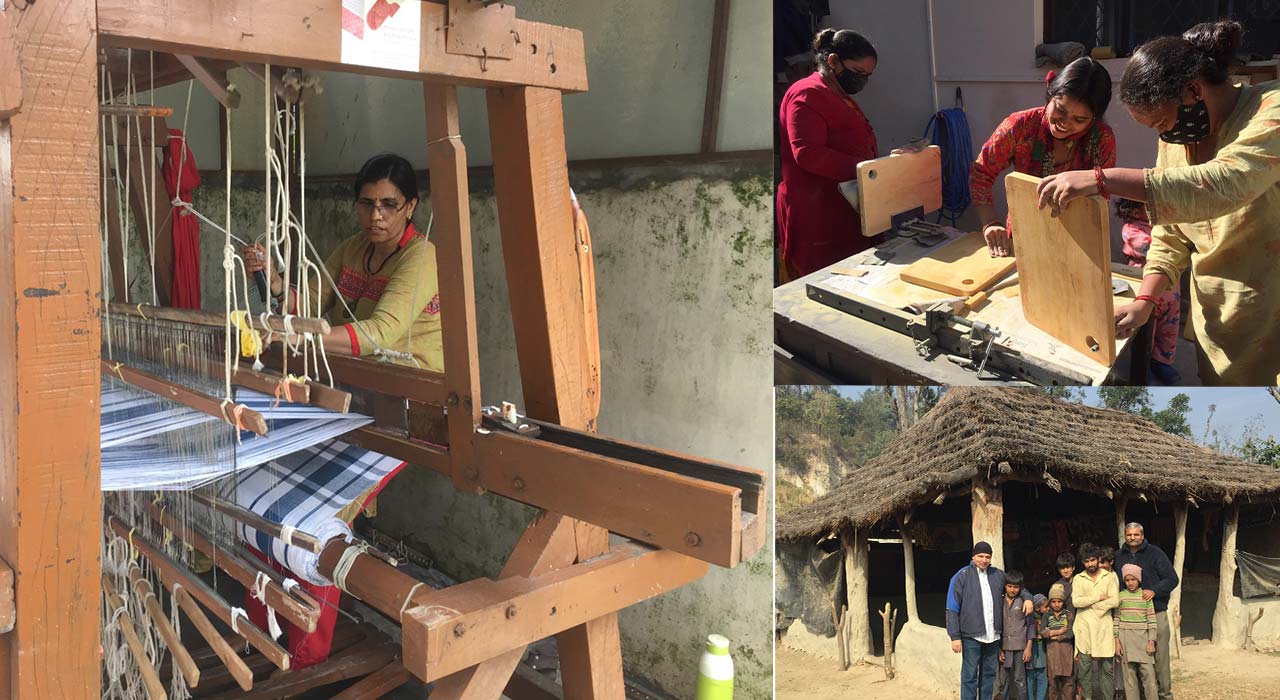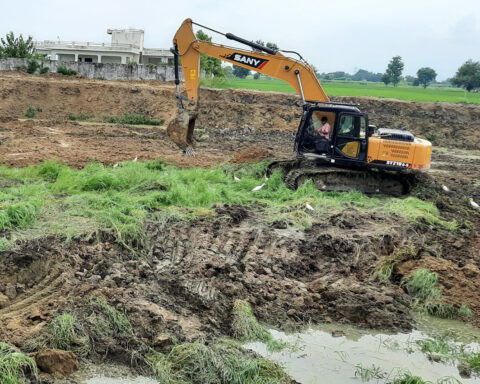Eight years ago, when Shahab Naqvi, 43, decided to quit his lucrative career in the information technology sector in Delhi-NCR and move to Dehradun to work in the social sector, his family and friends were not happy, to say the least.
He had everything going for him: a master’s degree in computer science and work experience with technology giants such as HCL, Mphasis and Lenovo. But, being of a fiercely independent mindset and with a desire to help underprivileged individuals and families to improve their lives, Naqvi moved to the hills.
It was a mere coincidence that while he had been managing the vocational operations of a major company in Uttarakhand and Uttar Pradesh, his interest in social justice and familiarity with academic institutions had led him to perceiving the need for an exclusive project designed for adults with special needs, particularly in the context of sustainable vocational enablement.
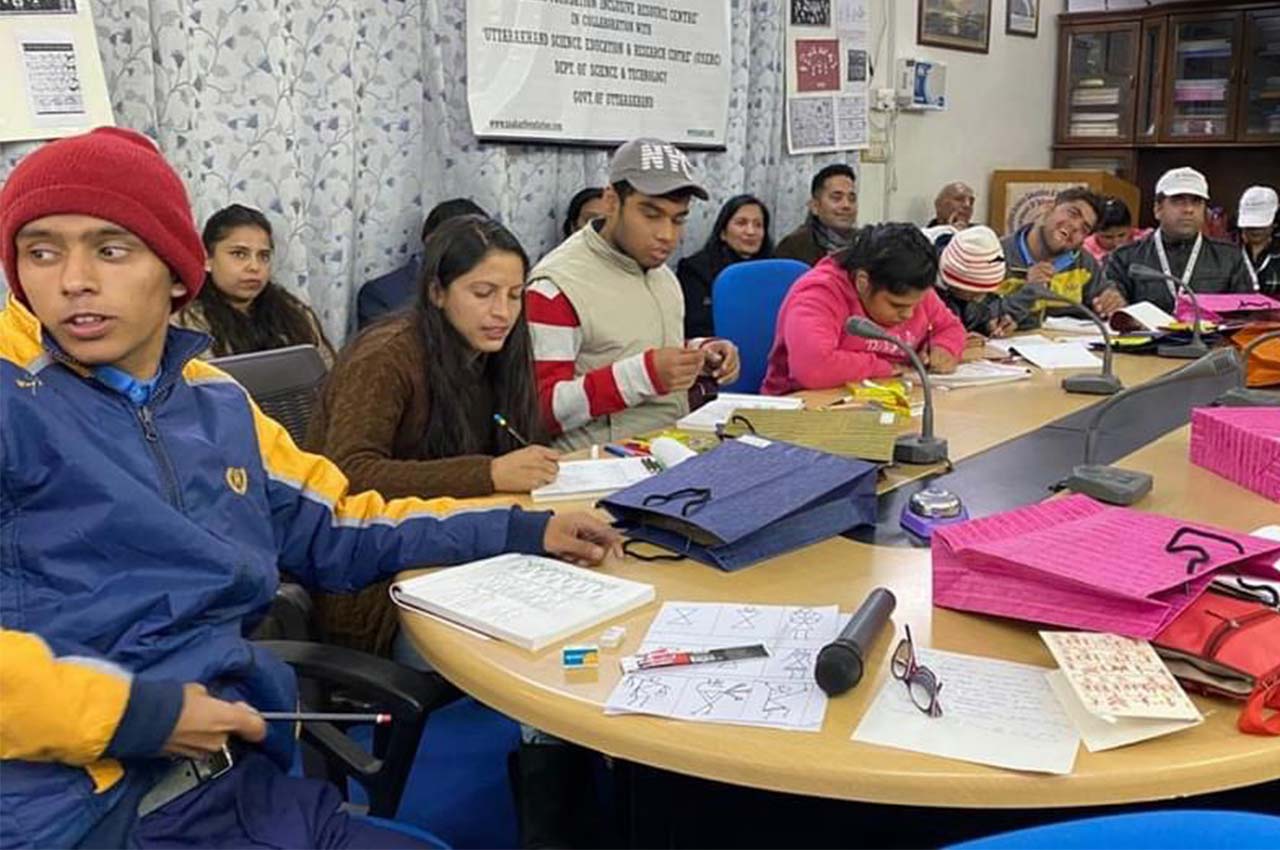
With the support of some special educators and schools, Naqvi then undertook an extensive 17-month study—from June 2016 to November 2017—of sustainable, socially-inclusive interventions for marginalised and vulnerable persons, including the differently abled. And this led to the setting up of the Saahas Foundation Inclusive Resource Centre, a social, not for profit, enterprise, in December 2017 in Dehradun.
Talking about the project, Naqvi says, “The effort is to create and execute vocational training programmes to equip vulnerable population, including people with disabilities, with the necessary skills to live a life of productivity with self-esteem.”
Saahas promotes different skill sets, rural areas-focused entrepreneurship, and inculcates a sense of financial autonomy in various economic pursuits. “This fledgling social enterprise is a sincere attempt to bridge the gap between traditional societal views and the aspirations of those categorised as socio-economically backward or underprivileged,” explains Naqvi.
With the support of special educators, Naqvi then undertook an extensive 17-month study of sustainable, socially-inclusive interventions for marginalised persons

To take his dream project off the ground, Naqvi registered the Saahas Foundation as a company under Section 8 of the Companies Act, 2013. “We registered a company because we wanted to work with commodities, raising income amongst communities. We also didn’t want to be identified or function like an NGO.”
Saahas came into being not only due to Naqvi’s efforts but also because of support provided by some other well-meaning, experienced persons such as Capt Vippan Chhibbar (retd) and Col Arun Mamgain (retd). Both are on Saahas’s board, and, in fact, Chhibbar is the current chairperson as well. An alumnus of the Rashtriya Indian Military College (RIMC), Dehradun, he holds senior positions in companies and educational institutions.
But the going was not easy. Though Uttarakhand is rich in resources, it has the inherent challenges of difficult, disaster-prone mountainous terrain. The state is home to several trades and enterprises but due to connectivity problems, lack of critical mass, dearth of an organised market and so on, these trades and enterprises struggle to sustain themselves and are unable to scale up enough to create a significant impact in families’ earnings.
Naqvi points out that “there has been commendable work in this region to facilitate and support these trades and enterprises through various organisations but since the efforts have mostly been done in a segregated manner, the impact too has been broadly diffused”.
Thus, says Naqvi, the crucial need is to create a strong platform which serves to converge all these scattered efforts and upgrade them into visible, scalable and organised business models. “There’s a need for a platform for training, learning, incubation, outreach and market linkage facilities on the livelihood front.”
It is apparently towards creating such a platform that Saahas has started several sub-projects under its umbrella:
Saahas Ekta
This project envisages participation of community organizations seeking to identify and develop diverse livelihood-centric vocational practices and models that are not only sustainable but also promote convergence with the economics affecting individuals. Therefore, under this project, Saahas organises events, seminars, workshops, and allied capacity-building programmes; promotes these as means to facilitate effective platforms of industry; and highlights inclusive vocational practices that are both developmental and industrial.
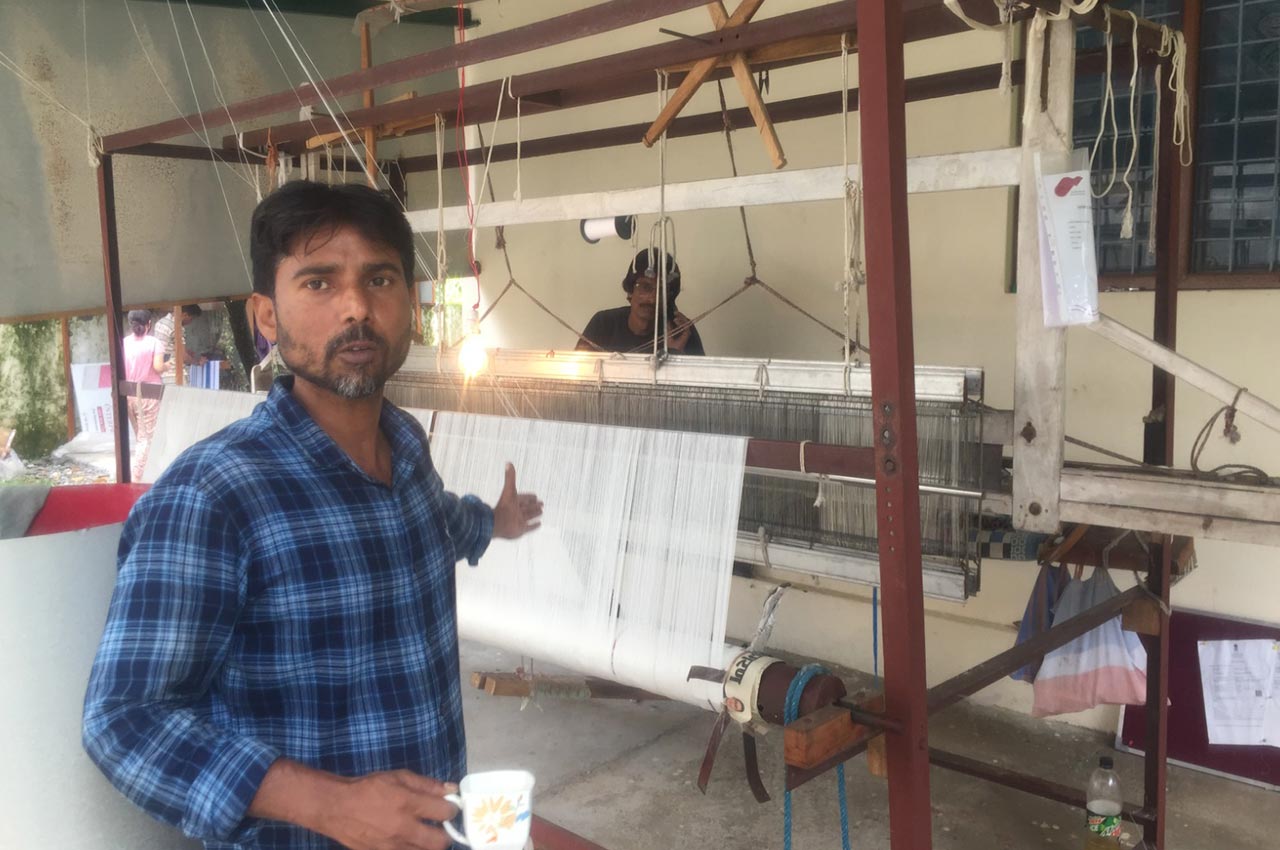
Saahas Bhumiveer
This is an initiative for community participation in times of need such as natural calamities. Through this programme, Saahas mobilized relief and rehabilitation work during the Covid-19 pandemic. The organisation’s project management skills and operational expertise were deployed to tackle the socio-economic effects on vulnerable and deprived sections of society.
Saahas Chetna
Under this programme, the organisation creates inclusive self-employment opportunities amongst marginalised communities. According to Naqvi, in many low-income community settlements, the informal economy offers many alternative sources of livelihood using natural resources. “Through this initiative we work among the vulnerable communities by training them in handicraft skills using materials such as recycled paper, bamboo, ringaal and wood, as well as across many farm and non-farm sectors,” he says.
Due to connectivity problems, lack of critical mass, dearth of an organised market and so on, these trades and enterprises struggle to sustain themselves and are unable to scale up
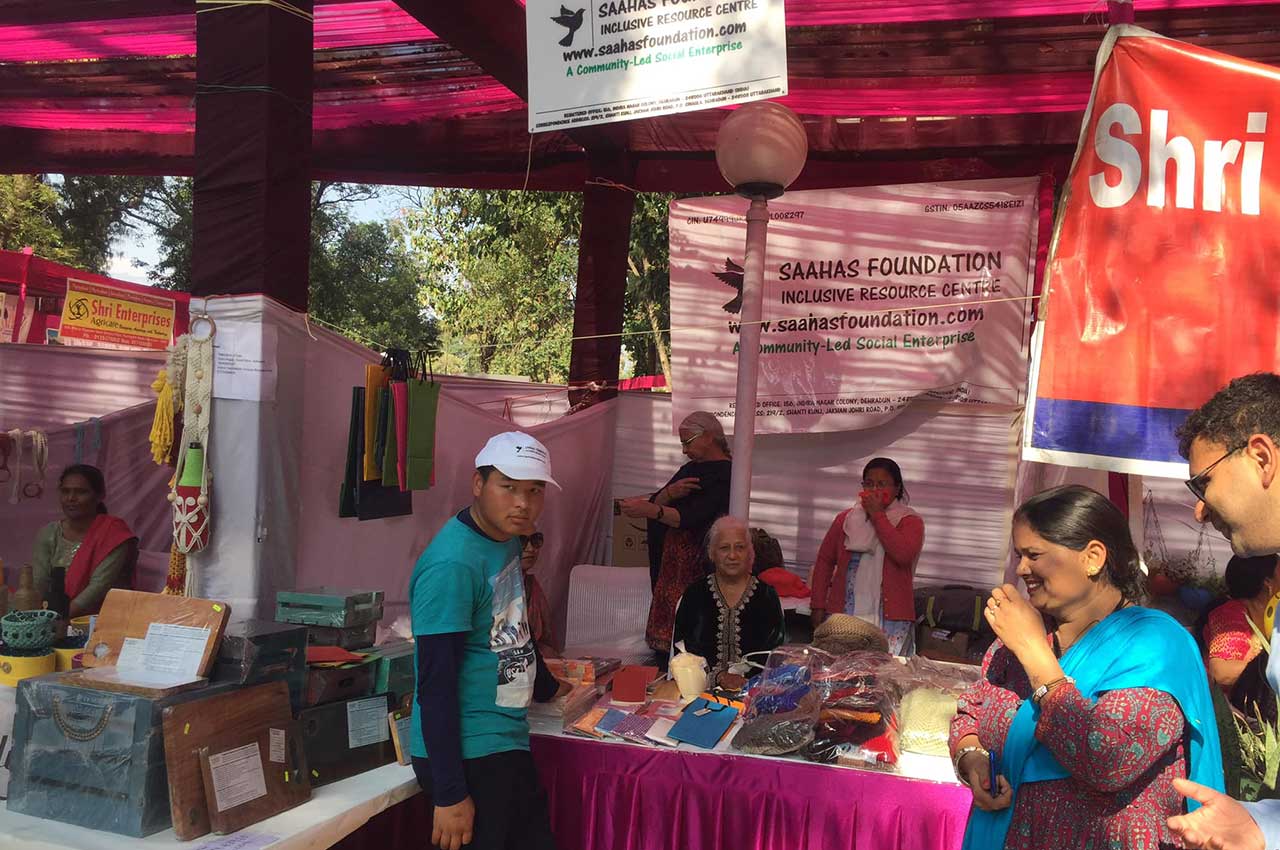
This project envisages an approach that focuses on individual participation and local, resource-based value chains. This entails direct community intervention, skills training initiative by engaging the local resource base, facilitating production kit distribution, training aids according to need, and forward linkages.
Saahas Parishram
This is more like a community-led science project which creates an understanding of using woodworking tools such as clamps, hammers and saws along with basic power tools such as grinders, electric drills and sanders.
Chhibbar says woodcraft demands skills and techniques related to measurement, assembly, precision and layout, thereby also integrating the project with teaching of an analytical approach. “We produce a variety of beautiful woodcraft items such as racks, stool seats, boxes, customized frames, benches, study tables and birdhouses as well as designer woodcraft pieces blended with wrought and cast iron.”
Saahas Saathi
This is a consulting initiative of the Saahas Foundation. It involves identifying and strengthening grassroots organizations working towards inclusive livelihoods amongst various communities in the state. This programme focuses on NGOs that are committed and have immense potential to contribute towards the welfare of communities but face certain challenges, particularly in rural and semi-urban areas, that limit their success.
There could be various challenges but most prominent are poor access to information and communications technology (ICT), and a lack of best practices for effective governance and administration. “Saahas Saathi is an effort towards addressing these key barriers through community-centric interventions and seeks to help by showing the way towards market linkages and social entrepreneurship,” says Naqvi.
Saahas Samanvaya
This programme works under the administrative supervision of the Dehradun district jail, involving efforts to reintegrate prisoners into society. It conducts this programme in collaboration with two local organizations—Project Burans and Akash Viklang Sewa Samiti. This programme is designed for vocational development, providing an advisory on modern equipment, income promotion and other associated functions related to skill enhancement.
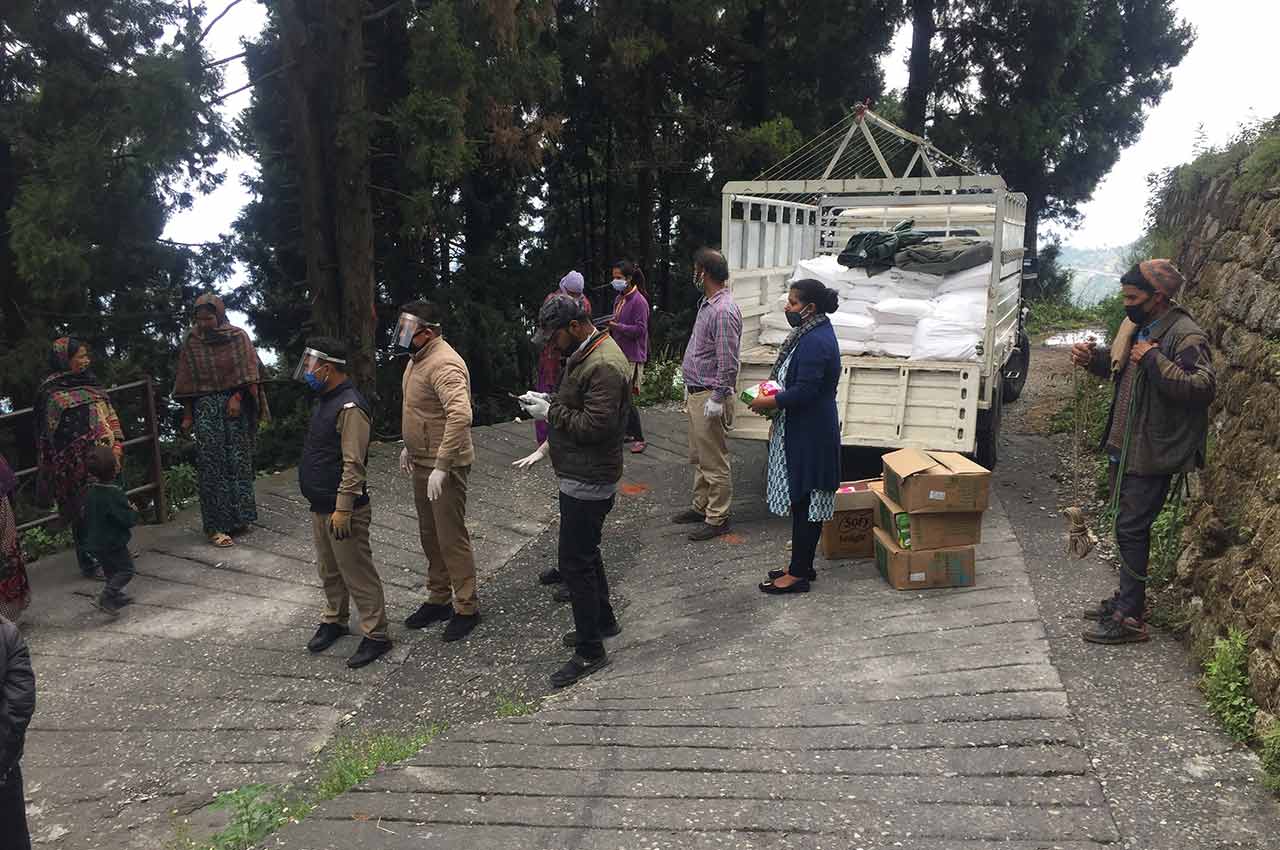
Project Burans, meanwhile, works towards facilitating identification, diagnosis and treatment of mental illness of prisoners. It also provides psychological support, by way of building knowledge and skills in the area of mental health.
Akash Viklang Sewa Samiti facilitates on-ground support by attending to grievances and documentation related to persons with disabilities, in coordination with the social welfare department of the Uttarakhand government.
Saahas Nirman
This programme is aimed at generating employment in villages through tourism related activities, in keeping with environmental concerns. The project attempts to develop collateral means of income in the foothills of Uttarakhand through activities such as homestays, trekking, food production, poultry, livestock, water-powered flour mills, polyhouses, step farming practices, fishing, and adventure and leisure activities.
Saahas Dobasu
This project seeks to leverage a traditional technique available in Uttarakhand that harnesses nature for producing energy. Gharat is a water turbine used for grinding wheat into flour that is found in the hills. Water sources to run the gharats are glaciers, perennial streams and rivulets.
Gharat is a water turbine used for grinding wheat into flour that is found in the hills. Water sources to run the gharats are glaciers and small rivulets
“Gharat is an indigenous technology that converts the potential and kinetic energy of water into mechanical energy. The uses of gharats in Uttarakhand are varied. While crushing and pounding grain into flour is the most common usage, they also come in handy in shaping timber, textile and metal,” says Naqvi.
Saahas Shram-Vigyan
This project aims at exploring and developing children’s natural capacity to learn. “It is about developing possibilities of enquiry-based learning, a form of learning that is more organic, innovative and less pre-scripted. Our purpose is to find ways and means of delving into these deeper aspects of learning and overcoming the crippling effects of rote learning which involves the passive consumption and memorising of information, facts and data,” says Naqvi.
The project involves Saahas associates working with schoolchildren and engaging them with the science of creation in an inclusive environment. Children work with the associates with varied backgrounds to learn art and craft, basic life skills such as carpentry, plumbing and electrical work.
Saahas Kitaab
This initiative is aimed at fostering a reading culture amongst children, with an emphasis on physical libraries. The founder stresses that “the emphasis on engagement of children in physical (as distinct from virtual) libraries is not intended to discredit any of the digital learning resources now in operation. The purpose is to establish a balance, a certain sociological parity between the two so as to offset the exclusionary stranglehold of the electronic and digital media on the processes of reading and learning.”
Saahas Kala-Khoj
Students were perhaps the most affected by Covid-19 as shutting down of schools and colleges for prolonged periods not only disrupted their educational progress but also deprived them of an important tool of social engagement. The overall stress caused by the pandemic contributed to making people depressed and developing a sense of loneliness and anxiety.
The Saahas Kala-Khoj project is an attempt to build confidence amongst children and adolescents whose lives have been affected by the pandemic
The Saahas Kala-Khoj project is an attempt to build confidence amongst children and adolescents whose lives have been affected by the pandemic. “It aims to help children discover and develop confidence in their own abilities through engagement with art as a process in developing self-esteem and sharpening aptitude for multisensory as well as social-emotional skills,” says Naqvi.
Saahas Dhaga
To begin with, this project aims to revive the dying culture of handlooms in the hills of Uttarakhand, and, at a later stage, in some other states. It envisages engagement of communities in promoting handloom artisanship as well as facilitating means for income, especially in the remote and rural areas.
“While we understand that there are reasons for the decline of handloom culture such as the emergence of automation and market competitiveness, yet revival and existence of traditional handloom working spaces cannot be devalued, for these not only raise income levels within communities but are the nerve in preserving heritage and community bonding,” says Chhibbar.
Training, design development, technique, e-commerce, and business development in an artisan-friendly manner are the focus areas of this project. Wherever possible, Saahas tries to seek help of relevant government agencies in this project.
In the approximately five years that it has been actively working in the largely rural areas of Tehri and Dehradun districts of Uttarakhand, and parts of Saharanpur in Uttar Pradesh, Saahas has helped a large number of people with employment-linked initiatives.
Intervention has been mainly in training vulnerable communities in handicraft skills using recycled paper and bamboo, and in woodcraft, carpentry, civil works, tourism, as well as across many farm and non-farm sectors. It is, however, not only skills training aimed at providing livelihoods that Saahas has been providing. The organisation has also been very active in organising relief work during natural calamities such as the Covid-19 pandemic or a cloudburst.
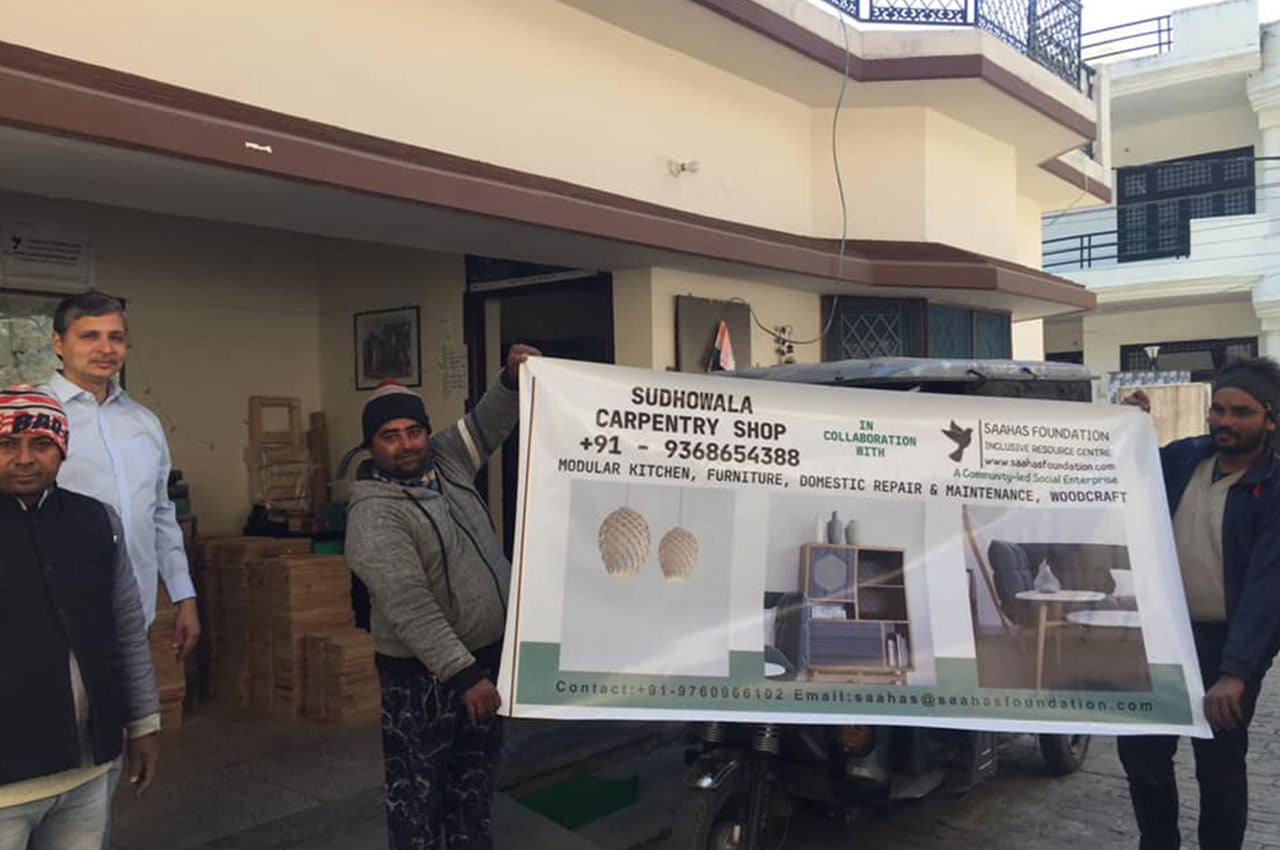
On learnings from the pandemic, Naqvi says, “Our field presence especially during and post-Covid reveals that the household economy is only working in parts and in many cases, by taking on debt, reinforcing a quest for radical alternatives.”
Intervention has been mainly in training vulnerable communities in handicraft skills using recycled paper and bamboo, and in woodcraft, carpentry
Explaining the Saahas Foundation’s philosophy in a nutshell, he says, “We are devoted to exploring and developing the natural capacity to learn, nurturing values of being socially aware and conscious, scientifically tempered young adults, growing up to be professionals and entrepreneurs. A conventional educational system generally tends to discount this capacity, discouraging the urge to enquire that children, adolescents and young adults possess innately.”
Compellingly, Naqvi believes “all that is thought and done with love and duty is of immense value in strengthening bonds with fellow human beings”.

